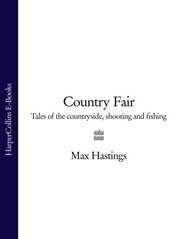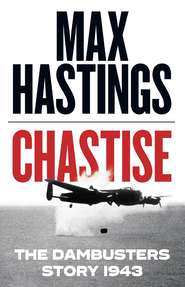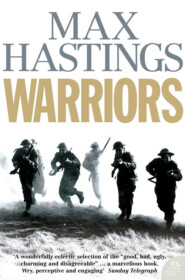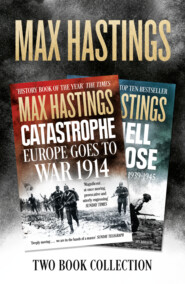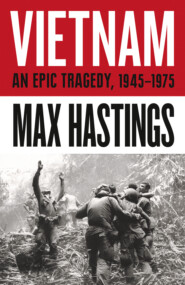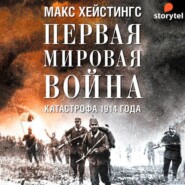По всем вопросам обращайтесь на: info@litportal.ru
(©) 2003-2025.
✖
Did You Really Shoot the Television?: A Family Fable
Настройки чтения
Размер шрифта
Высота строк
Поля
Probably because Edward’s financial circumstances made close budgeting essential, as well as because he possessed a meticulous temperament, he commissioned custom-printed account books. In these, he recorded every detail of expenditure on behalf of each member of the ever-expanding Tribe. Ethel, his first child, arrived in 1879; Lewis, the eldest son – named for Leyson Lewis, the family benefactor who provided Edward with his vital allowance – in the following year; my grandfather Basil in 1881. Thereafter babies, all born at home, followed in a profusion that must have gladdened the heart of the family priest. Like Dickens’s much-put-upon clerk, ‘the Cherub’ Reginald Wilfer of Our Mutual Friend, Edward had a ‘limited income and an unlimited family’. The account books eventually contained separate pages for:
Hastings Mrs E
Hastings Ethelreda Agatha Gordon
Hastings Lewis Macdonald
Hastings Basil Macdonald
Hastings Gladys Mary Fraser
Hastings Beryl
Angela Macdonald
Hastings Claude Hugh
Hastings Aubrey Joseph
Hastings Everard Ignatius
Hastings Eulalia Emily Macdonald
Hastings Muriel Magdalen
Hastings Rene Francis
In 1890 the family’s annual income was £416, of which household costs consumed £200, rent a further £70, an annual holiday £17.11s.3d. Edward recorded expenditure upon himself of £6.2s.0d on clothes; 2s on hair cutting; £11.0s.6d on lunches; £3.12s.0d on travel. In 1901, the last year for which the account books survive, his salary was just £312.10s.6d, the family’s expenditure £319.17s.5d. This included seventeen tons of coal at £22.10s.6d; lunches at £6.2s.6d; £10 on a holiday; £6.2s.0d for clothing; one penny for a diary; half a crown for postage; £20 for Elizabeth; £3 or £4 apiece on the children, including 3s.5d for dress-lining for Beryl, and 2s.4d for Claude’s sand shoes. There were also assorted halfpennies for orphanages and the destitute; a few pennies apiece to the church choir, school treats and various Catholic charities. Edward bought one suit a year, collarless to save on the expense of ties. He paid £10 in income tax.
He was obsessed with keeping records, a habit honed by thirty years in a solicitors’ office, and he made his children follow suit. From their earliest years, transgressions were minuted. They were required to make formal confessions or promises of future good behaviour, like this one signed by Lewis:
I Lewis Macdonald Hastings do hereby pledge myself to my father as under
1. not to buy on credit
2. not to apply again to my father for a loan
3. to repay present loan of £2.5.0 by weekly instalments of 5/
4. I represent to my father that I want the present loan to repay R. Gray for a liability they have incurred on my behalf for a suit of clothes
5. to buy myself a nightshirt.
Basil suffered similar embarrassments, which he was also obliged to confess. Edward debated his own dilemmas in writing, as in this memorandum to himself, dated 2 May 1901: ‘Question: whether having power either to send Claude and Aubrey to Stony-hurst or to Wimbledon we ought to exercise that power in favour of Stonyhurst when the consequences will be that Muriel cannot be sent to school till she is 16.’ Stonyhurst’s fees were £14.18s.5d a year, plus £2.8s.6d clothing allowance. Edward considered, and rejected, a notion that if he borrowed money, Muriel might be sent away to school at fifteen. Instead, he made minute calculations about the cost of journeys to Lancashire. He concluded that a few pence could be saved by ensuring that the boys always took the college trap from the nearby station at Whalley. It was decided that Claude and Aubrey should indeed be sent to Stonyhurst, ‘using portmanteaux bought for Basil and Lewis’.
Edward’s children lived in awe of their father, perceiving his profound commitment to conducting life as religion taught. Basil wrote later of his father’s ‘nobility’, his behaviour as ‘an example of light and guidance’. Edward kept a secret journal in Greek characters, in which he described strivings with his own conscience which became more pronounced and indeed tortured as he grew older. He scarcely ever lost his temper. Once, after displaying anger to their maid, in the midst of the following Sunday lunch he summoned the girl and apologised in front of his children. Basil described him: ‘Silent, always apart, he passed through the world shunning company, afraid that he might become too attached to temporal things.’
A priest who was a family friend described him as ‘the ideal Catholic layman’. Basil said: ‘You cannot write down how people are good. You just know it and cannot get away from it. I don’t think any of us remember his ever doing anything or buying anything for himself. He just worked and worked and prayed and prayed. Sometimes, the mater would buy him a packet of cigarettes and he would smoke one each evening. I think he was a little ashamed of that luxury.’ Each night, Edward blessed each of his children before they went to bed. In May there was always an altar to Our Lady on the staircase, before which the family gathered for prayers. Even by the standards of the Victorian era, the severity of the regime which Edward imposed upon himself seems flagellatory.
Yet nobody could exercise effective control over eleven children once their father disappeared to his office. Basil wrote: ‘Our garden was enormous, actually hedges and a mulberry tree. The hedges were absolutely right for ambuscades and sitting behind to eat all your sweets if you didn’t want to give any away. Once the garden was all dug up into trenches in the most perfect manner (in connection with the drains) and the kids played at the Boer War, which was on at the time…They must have done it pretty well because we had a genuine Spion Kop where all the garden refuse had been piled up.’
When it rained, the back garden became swamped. Two French boys named Louis and Albert were then summoned from next door to re-enact the battle of Trafalgar. Lewis played Nelson, of course, though Basil as Hardy refused to kiss him. The Tribe were bemused by Louis and Albert’s ready acquiescence in defeat, but in those days the French seemed resigned from birth to English superiority. On other days the children enacted the battle of Lake Regillus, or put planks across the garden inundation and played Horatius holding the bridge across the Tiber. The Pater made them learn reams of Macaulay by heart, and they put the knowledge to good use. Lewis acted Horatius. Small members of the Tribe served as Tarquins, who fell in the swamp after being stabbed, ‘so that we were usually dragged in to tea and dripping instead of butter’.
Their father, ever the legal pedant, conducted ‘trials’ to mete out justice for his children’s outrages against each other, at which evidence was solemnly taken, witnesses cross-examined. Edward then pronounced a verdict, typically: ‘No jury could convict on such conflicting evidence. Case dismissed. Parties to kiss each other.’ Basil wrote: ‘That was the sort of trick the pater usually played on us. When we were all dead tired he’d stop the case and make us kiss when we’d much rather have been thrashed. It’s bad enough to have to kiss your sister, or any girl, but a brother – pah!’
The girls and boys fought each other relentlessly. Whenever it was the Mater’s day to go to the Stores, and Edward was safely absent at his office, there was a war. This might be started by Lewis snatching a book from Ethel, or Ethel making a sneering reference to the colour of Basil’s hair. Once hostilities had been joined, the girls flew to entrench themselves in their room, usually accompanied by a hostage, perhaps baby Everard.
In the ensuing siege, pepper might be squeezed through the keyhole, smelly chemicals pushed under the sill, the lock smashed with a hammer and pincers. When the door was breached, the girls flew for protection to the servants – even in that modest household, there were three. Gladys might then avenge the girls by sneaking into the boys’ room and tearing a page out of a favourite book Basil had been given for Christmas. Basil wrote: ‘The funny thing about all of us was that none were particular chums. We all liked each other and fought each other constantly. No one was particularly popular and no one was unpopular.’ He speculated that one reason for this was that they were rigorously segregated from other local children, who were deemed socially unacceptable: ‘This probably had the effect of making us think that we belonged to quite a superior order of beings.’ Little Eulalia, once rebuked for speaking to strange children, replied serenely: ‘God made them,’ then, as an afterthought, ‘and made them like hens.’
Lewis was inevitably chief. All the children grew tall, the boys over six feet, except Basil who stopped at five feet seven. They developed a ruse for raising cash. Sometimes the older children were allowed to take the younger ones for a short walk without Nurse. They would station themselves outside a sweetshop then, at the sight of a benign-looking old gentleman or lady, overturn the pram containing baby Muriel Magdalen. The ensuing shrieks usually prompted the passerby to still the clamour by proffering a penny, immediately appropriated by the baby’s siblings to buy sweets.
In times of penury, they sometimes purloined their father’s books, ‘mostly trash about science and philosophy and so on, that he could hardly miss’, and sold them at a curiosity shop not far from the house. They christened the old dealer ‘Tuppence-the-Most’, because that was the largest sum he offered for anything. By degrees, most of the contents of the Hastings attic ended up in the shop of ‘Tuppence-the-Most’. The boys always wondered what the neighbours thought of the sight of them crawling round the roof leads, laden with goods. Nobody ever said anything, however. When in funds, they hired a bicycle from the old dealer for sixpence an hour. Six of them would take it in turns to try to master it, taking ten minutes apiece. Most of the boys’ money, however, went to the turnstiles at The Oval, a few minutes’ walk away. Passionate cricket fans all, devoted to the fortunes of Surrey, day after day they watched play from first ball to last. When his offspring were small, Edward Hastings subjected them to an hour’s lessons each day before he left for the office – Latin, Greek, Roman history and maths. Homework was set for the rest of the day, while Lizzie Hastings taught handwriting, history and geography. As the children grew older, tutors visited twice a week, including a bearded Frenchman who smelt of snuff, instructed them in his language, and prompted disgust by kissing them. Edward was too gentle a man to thrash his children, but Lizzie, in this as in most things a dour Scots biddy, applied the birch vigorously.
Their father liked to reward members of the Tribe for good behaviour or feats of prowess by inviting them to write down what presents they wanted, come their next birthdays. When Lewis was seven, on 8 March he wanted a whip; on 10 March, a box of tools and an alarm clock; on 7 June, implausibly, a bowl of flowers; on 13 June, a little pump; on 19 July, boxing gloves. When Ethel was eight, on 8 June she asked for handkerchiefs; four days later for a little pump. When Basil was five, on 13 June he bespoke a little pump; on the twenty-sixth a camp stool; on 19 July boxing gloves. The shared mania for ‘a little pump’ was prompted by a fascination with one which their father used for filling his bath, in the absence of taps. The children loved to work it, though when they grew up they puzzled in vain to remember why. ‘Needless to say,’ recalled Basil ruefully, ‘we never got any of the presents we asked for. All we got was money, which had to be put into the Savings Bank at once and dragged out afterwards to pay for broken windows.’
Yet another mystery of the family’s financial affairs is how Edward Hastings, on an annual income which rarely exceeded £400, contrived each autumn to take his enormous clan to the seaside for six weeks. The children adored the holidays, but dreaded the journeys. Edward, obsessive as ever, wrote down lists of every item of baggage, and insisted that each was ticked off as it was carried out to the railway omnibus, while the children stood in line, at attention in the hall. Besides the pram, camp stools and suchlike, a large table from Trinity Square was thought indispensable, because it was the only one at which Edward felt himself able to write in comfort. Each child was likewise ticked off the list, as the Tribe filed out of the house. In a characteristically quirky letter dispatched to Lewis, by then missing from the family party because he was at Hodder, Stonyhurst’s prep school, Edward rehearsed one such journey, in a fashion which suggested that he was a court reporter manqué:
Herm, 1.10.92
At 8.20am on Friday 23 Sept 1892 a (Victoria) omnibus with pair horses pulled up at 29 Trinity Square. In the hall there were
seventeen pieces of luggage as under. (1) cutter stand. (2) cutter (3) office bag (4) Elizabeth’s box (5) my wraps (6) CSSH grub box (7) mamma’s wraps (8) cradle (9) children’s box A (10) children’s Box B (11) hatbox (12) hamper (13) portmanteau C (14) portmanteau D (15) mamma’s tin box (16) children’s hat box (17) Margaret’s box.
The following persons were in the square looking on while the driver loaded the luggage: The Jacobs – the Smiths – the inhabitants of the Brockham Street corner house. Caroline Attwood the sister of Margaret Attwood came to see us and travelled with us to Waterloo. Mr Jarvis’s old woman was left in charge. I gave her a matchbox. Before the driver started Gladys and Beryl went on top of the omnibus. They saw the driver take a bottle. We were too quick for him.
Edward concluded with a brief inquisition, also characteristic:
(1) Have you been allowed to have your notebooks?
(2) What is the name of the archbishop who visited Hodder on 20 Sept? If you don’t know, find out.
(3) Furnish list of school books, stating a) name of book b) author c) edition d) date e) publisher
(4) Ask Father Graham the name of the Jesuit who drowned.
Herm, in the Channel Islands, was the family’s favourite destination. For several successive years, Edward rented a house on the island, the whole of which was the private property of a Prussian nobleman, Prince Blücher. Their holiday routine was as precisely regimented as everything else in their lives: 7 a.m., rise; 8 a.m., breakfast; 9 a.m., compile journals; 10 a.m., free time; 11.30 a.m., bathe; 1 p.m., lunch; 2.30 p.m., family walk; 5 p.m., tea; 5.30 p.m., evening prayers; 5.45 p.m., free time; 6.30 p.m., all children under seven go to bed; 8 p.m., supper; 8.30 p.m., retire to rest. The only part of each day which the children found intolerable was the requirement to compose a journal of its predecessor. Here is a typical entry of Lewis’s:
Bathed in the morning. Pater swam out five or six miles, perhaps, and a man said, ‘What is that man doing that for?’ It was Aubrey’s birthday. He got a pile of prayer-books from the pater and mater and somebody else gave him 2s 6d and a watch and chain, which broke while we were all winding it. Borrowed sixpence from Aubrey and went rowing with Basil. Dinner roast pork, beans, potatoes, stewed plums and rice pudding. Sardines for supper. Buns for tea. Yesterday the sky was an Italian blue. There was no wind. The sea was studied [sic] with boats of all kinds. There are some books in this house. Some of their names are God’s Glorious Creation, The Plant World, On Foot in Spain, John Halifax, Cresswell’s Maxima And Minima and Map And Plan Drawing, all rotten.
The children’s favourite companion on Herm was a fat, grizzled old sailor named Tom Duffy, who served as engineer of Prince Blücher’s private steam yacht. A man of infinite good nature, who had travelled the world as a seaman, Tom told them tales of Africa, the West Indies, Constantinople, Iceland. ‘It was so very much better than the stories in The Boy’s Own Paper,’ wrote Basil. The old salt took the children fishing for whiting and mackerel, and rigged their model boat. They spent hours standing at the door of his curious little cottage, in which he kept everything hung on the walls – even his prayer-book, attached to a piece of string. He said that it saved an old man the bother of reaching down. Tom, to the Pater’s gratification, was a good Catholic. When they saw him chewing tobacco, the boys tried it themselves. They were horribly sick, and were later soundly thrashed by the Mater. The aged sailor laughed heartily next day when he heard the story. He resumed his usual duty, answering the children’s incessant questions.
‘Ever been to Jersey, Tom?’
‘Rather.’
‘What’s it like?’
‘Jersey? Jersey’s a place for five-pound swells. A five-pound swell? That’s one of those young fellers cutting a dash on five pounds because that’s all he’s got.’







